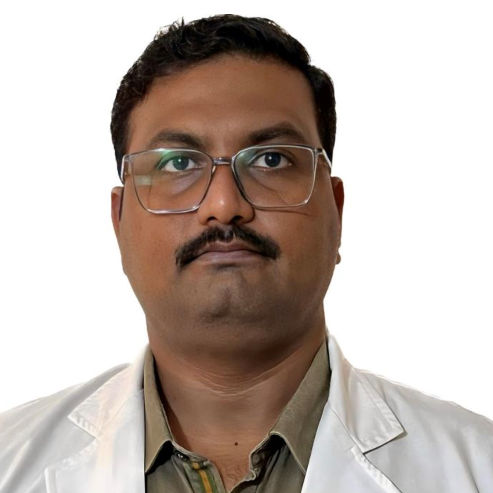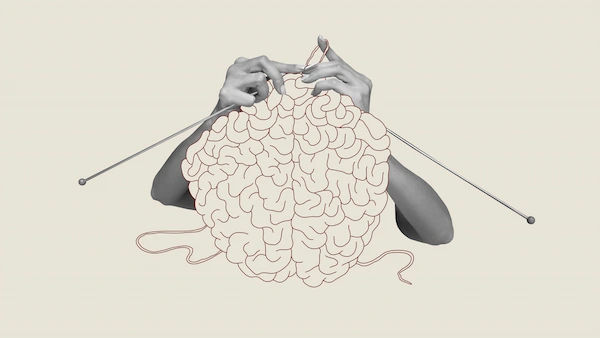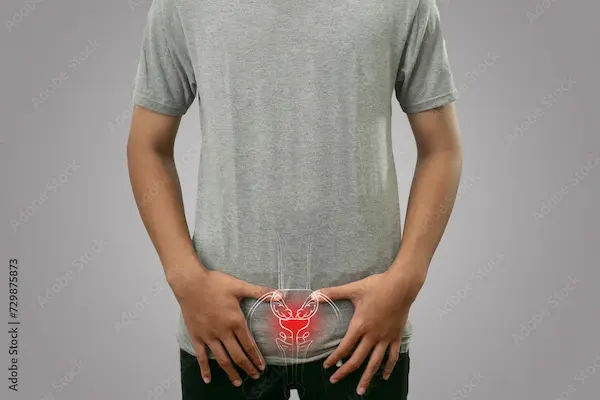Tachypnea: Understanding Causes, Symptoms, and Treatment
Learn about tachypnea, a condition of abnormally rapid breathing. Understand its causes, symptoms, diagnosis, and treatment options for better respiratory health.

.webp?tr=q-80,f-webp,w-350,dpr-2,c-at_max 700w)
Introduction
Breathing is something we often take for granted, until it becomes difficult. Tachypnea (pronounced tak-ip-nee-uh) is a condition where a person breathes abnormally fast, usually more than 20 breaths per minute for adults. While rapid breathing can sometimes be normal (like after exercise), persistent tachypnea may signal an underlying health issue.
If you or a loved one experiences unexplained fast breathing, it’s important to understand the causes, symptoms, and when to seek medical help.
What Is Tachypnea?
Tachypnea is not a disease itself but rather a symptom of an underlying condition. It means your body is trying to get more oxygen or remove excess carbon dioxide quickly.
Normal Breathing Rate vs. Tachypnea
- Adults: 12–20 breaths per minute
- Children: 20–30 breaths per minute
- Infants: 30–60 breaths per minute
If breathing exceeds these rates at rest, it may be tachypnea.
Consult a Pulmonologist for the best advice
Common Causes of Tachypnea
Several conditions can lead to rapid breathing:
1. Respiratory Conditions
- Asthma – Narrowed airways make breathing difficult.
- Pneumonia – Lung infection causing oxygen shortage.
- Chronic Obstructive Pulmonary Disease (COPD) – Long-term lung damage.
- Pulmonary Embolism – A blood clot in the lungs.
2. Heart Problems
- Heart Failure – The heart can’t pump blood effectively, leading to fluid buildup in the lungs.
- Anaemia – Low red blood cells reduce oxygen supply.
3. Infections & Fever
- High fever or severe infections (like sepsis) can increase breathing rate.
4. Anxiety & Panic Attacks
- Stress triggers rapid, shallow breathing (hyperventilation).
5. Other Causes
- Dehydration
- Allergic Reactions
- Metabolic Disorders (e.g., diabetic ketoacidosis)
Symptoms of Tachypnea
Along with fast breathing, you may experience:
- Shortness of breath
- Chest tightness or pain
- Bluish lips or fingertips (due to low oxygen)
- Fatigue or dizziness
- Wheezing or coughing
In infants & children, watch for:
- Flaring nostrils
- Grunting sounds
- Ribs visibly pulling in with each breath
When to See a Doctor
Seek immediate medical help if rapid breathing is accompanied by:
- Severe chest pain
- Confusion or fainting
- Bluish skin (cyanosis)
- High fever with difficulty breathing
For milder cases, consult a doctor if:
- Fast breathing lasts more than a few hours
- It happens frequently without obvious cause
Diagnosis & Tests
A doctor may recommend:
- Pulse Oximetry – Checks oxygen levels.
- Chest X-ray or CT Scan – Looks for lung/heart issues.
- Blood Tests – Detects infections or metabolic problems.
- Electrocardiogram (ECG) – Checks heart function.
Get Your Health Assessed
Treatment Options
Treatment depends on the underlying cause:
1. Medications
- Bronchodilators (for asthma/COPD)
- Antibiotics (for infections)
- Diuretics (for heart failure)
2. Oxygen Therapy
- If oxygen levels are low, supplemental oxygen may be given.
3. Breathing Exercises
- For anxiety-related tachypnea, techniques like diaphragmatic breathing can help.
4. Lifestyle Changes
- Quit Smoking – Improves lung health.
- Stay Hydrated – Helps thin mucus in airways.
- Manage Stress – Meditation or yoga can reduce hyperventilation.
Prevention Tips
Healthy lifestyle choices can support better breathing. Here are some prevention tips for tachypnea:
- Exercise Regularly – Strengthens lungs and heart.
- Avoid Pollutants – Smoke, dust, and chemicals can irritate lungs.
- Monitor Chronic Conditions – Keep asthma, diabetes, or heart disease under control.
When to Consult a Specialist?
If you frequently experience unexplained rapid breathing, a pulmonologist (lung specialist) or cardiologist (heart specialist) can help identify the cause.
Final Thoughts
Tachypnea can be alarming, but understanding its causes and symptoms helps in taking the right action. Whether it’s due to a respiratory issue, heart condition, or stress, timely medical care can make a big difference.
Consult a Pulmonologist for the best advice
Consult a Pulmonologist for the best advice

Dr. Tamal Bhattacharyya
Pulmonology Respiratory Medicine Specialist
8 Years • MBBS, MD (Respiratory Medicine)
Kolkata
MCR SUPER SPECIALITY POLY CLINIC & PATHOLOGY, Kolkata

Santoshkumar P Hammigi
Pulmonology Respiratory Medicine Specialist
4 Years • MBBS,MD, (Respiratory Medicine)
Bengaluru
Apollo Medical Center, Marathahalli, Bengaluru
(25+ Patients)

Dr. P Sravani
Pulmonology Respiratory Medicine Specialist
3 Years • MBBS, MD
Visakhapatnam
Apollo Clinic Vizag, Visakhapatnam
Dr. Ambuj Kumar
Pulmonology Respiratory Medicine Specialist
10 Years • MBBS, MD (Pulmonary Medicine)
New Delhi
Smriti Gynaecology and Lung Centre, New Delhi

Dr Rakesh Bilagi
Pulmonology Respiratory Medicine Specialist
10 Years • MBBS MD PULMONOLOGIST
Bengaluru
Apollo Clinic, JP nagar, Bengaluru
Consult a Pulmonologist for the best advice

Dr. Tamal Bhattacharyya
Pulmonology Respiratory Medicine Specialist
8 Years • MBBS, MD (Respiratory Medicine)
Kolkata
MCR SUPER SPECIALITY POLY CLINIC & PATHOLOGY, Kolkata

Santoshkumar P Hammigi
Pulmonology Respiratory Medicine Specialist
4 Years • MBBS,MD, (Respiratory Medicine)
Bengaluru
Apollo Medical Center, Marathahalli, Bengaluru
(25+ Patients)

Dr. P Sravani
Pulmonology Respiratory Medicine Specialist
3 Years • MBBS, MD
Visakhapatnam
Apollo Clinic Vizag, Visakhapatnam
Dr. Ambuj Kumar
Pulmonology Respiratory Medicine Specialist
10 Years • MBBS, MD (Pulmonary Medicine)
New Delhi
Smriti Gynaecology and Lung Centre, New Delhi

Dr Rakesh Bilagi
Pulmonology Respiratory Medicine Specialist
10 Years • MBBS MD PULMONOLOGIST
Bengaluru
Apollo Clinic, JP nagar, Bengaluru





